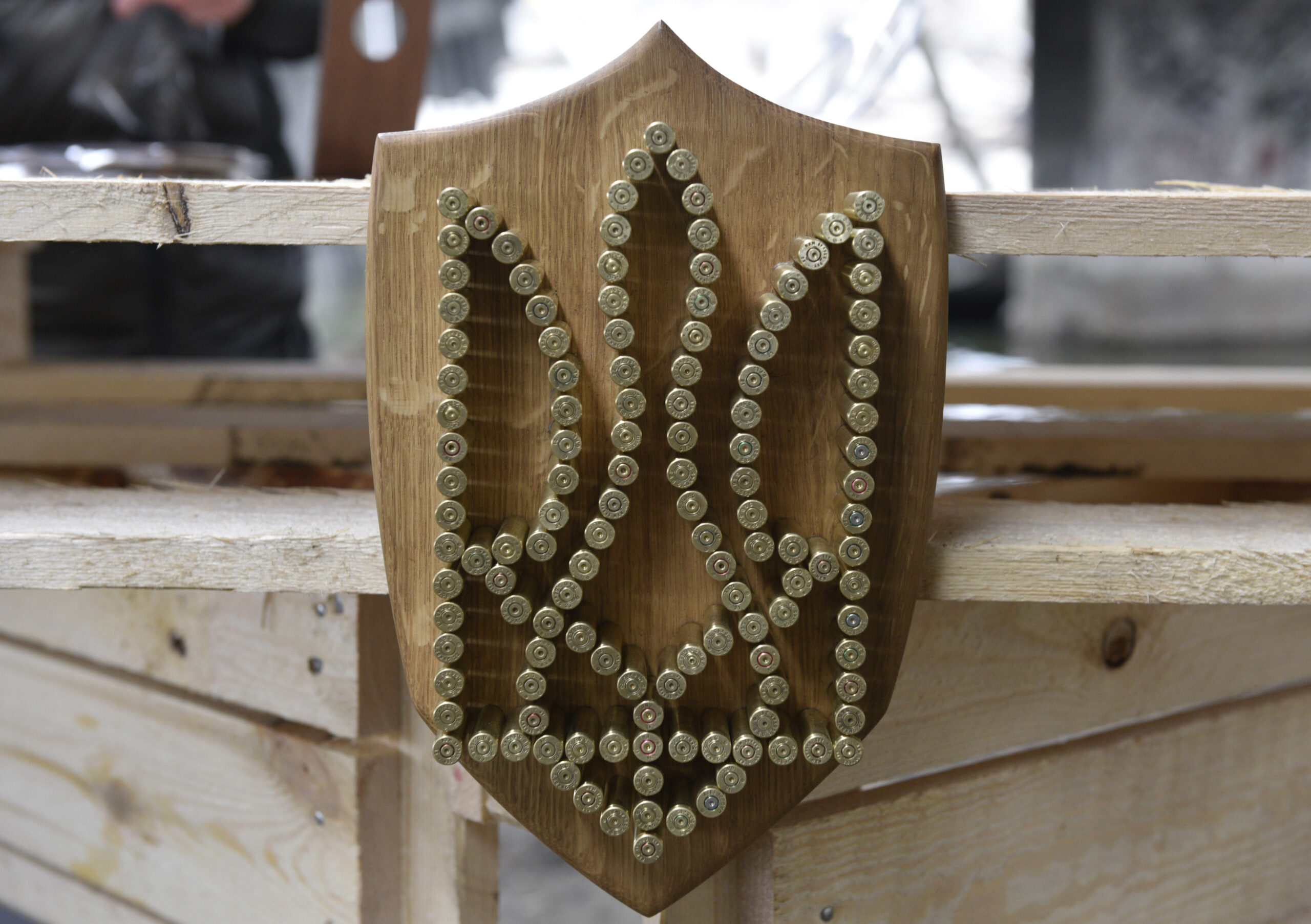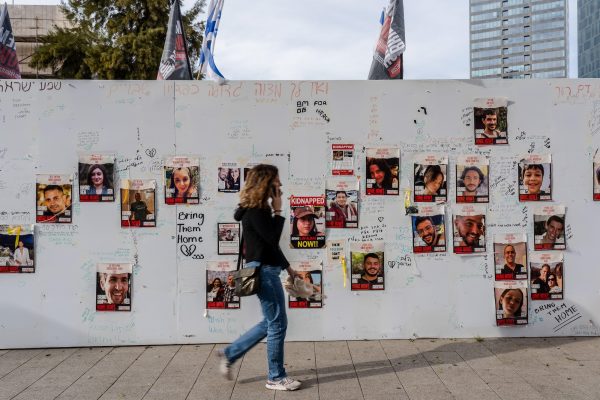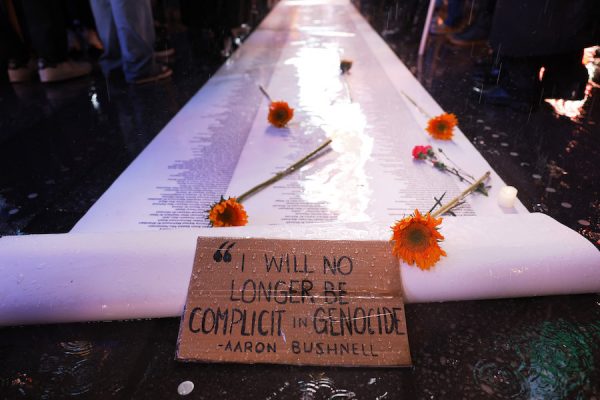The reaction of many U.S. intellectuals to the war in Ukraine—the cavalier disregard shown to victims of aggression, the calls for negotiations over the heads of those directly affected—has unpleasantly surprised many progressive Ukrainians, as has the position of many self-proclaimed realists, whose analysis has sometimes born very little relation to reality.
Rajan Menon helps move the discussion in a more constructive direction, but I wish to expand on a few points. I write from Ukraine, where I am serving in the army.
First, I agree that “NATO expansion poisoned the well for U.S.-Russia relations” in the 1990s, and in this sense “did create the context for the invasion.” I argued a similar position in an article last year. But this view does not contradict the idea that the root cause of the war was Putin’s imperial chauvinism and rejection of a democratic Ukraine.
I also find Menon’s critical assessment of the “Finlandization” of Ukraine—proposed by many on the eve of invasion—valuable. He rightly points out the Kremlin’s differing attitudes toward Finland and Ukraine, and that demands for Ukrainian “neutrality” were really prompted by a desire to bring the country under Russia’s sphere of influence.
But I would go further: I think these considerations undermine Putin’s criticism of NATO enlargement. To a large extent, the Russian ruling class objects to Eastern European countries joining NATO not because of “legitimate security concerns” but because doing so marks a shift away from Russian influence. The Kremlin’s restrained reaction to Finland’s recent accession to NATO only confirms how little security is at stake. The stronger the imperial perception that other countries are part of “historical Russia,” the more negative is the reaction to their cooperation with the West.
Here is one of the main problems with Mearsheimer’s offensive neorealism, which ignores the interests of “small” countries and normalizes the desire of “great powers” to dominate neighboring states. I’m glad Menon doesn’t do that, but when he describes NATO enlargement as “a plan that was hatched in Washington,” he ignores the fact that NATO’s shift to an open door policy in the 1990s was influenced by Eastern European countries that wanted to join the alliance.
I also agree with Menon that “the more that Russian officials come to believe that the West’s true objective is to topple their government or, worse yet, precipitate Russia’s disintegration, the more determined they will be to fight on.” Russian media skillfully uses this prospect to maintain loyalty to Putin’s regime. Western officials should be careful what they say and remember that Russian citizens should decide Russia’s future.
But there is another side to the coin. Lasting peace is only possible if Putin’s regime falls, and only with a post-Putin Russia can Ukraine “overcome the canyon of mutual animosity and mistrust.” As long as Putin is in power, Russia will continue to move toward an increasingly authoritarian and reactionary regime and an increasingly atomized society. Although some kind of deal with Putin is possible, there is no point in counting on a full-fledged normalization of relations with Russia under his rule.
The West should not aim to overthrow Putin, then, but it should not be afraid of such a development, either. Menon raises the specter of chaos in Russia should Putin fall, but he forgets that Putin and his regime will not last forever. Putin will inevitably leave his successors a difficult legacy, and the later he leaves, the harder it will be. The later the Putin regime falls, the greater the likelihood of chaos.
Unfortunately, even a defeat in Ukraine will not guarantee Putin’s fall. But defeat will bring it closer, while any gains Russia makes will defer it. Those who call for concessions to Russia only increase the likelihood of catastrophic scenarios. Therefore, instead of trying to help Putin save face, the West should think about how to interest the Russian elites—who will most likely remain after Putin—in just peace.
I also agree with Menon that if Putin does decide to use nuclear weapons, Ukraine will be the most likely victim. But if we are the first to be threatened, it’s primarily Ukrainians who should decide what risks to take.
It’s not just that Ukrainians don’t want to make concessions and believe in the possibility of victory. Potential changes in Ukrainian politics and society matter too. The Russian invasion has led to a strong consolidation of Ukrainian society, but once the fighting stops, the dam will burst and mutual accusations will pour in. If the war ends in victory, the sharpness of internal struggle could be mitigated, leading to constructive reforms and progressive trends in Ukrainian society. But if Ukraine is forced to make serious concessions, revanchism and witch-hunts may flourish, provoking the rise of the far right and increased domestic chaos. Even if Western support continues, concession will have a negative impact on Ukraine’s defense capabilities.
The temporal dimension of this war is also important: it cannot be simplified to a question of whose side has time. Russia made many serious mistakes at the beginning of the invasion and suffered serious losses, while Ukraine was able to secure enormous international support. But circumstances could change—for example, if a Republican wins the U.S. presidential election. There is no guarantee that if Ukraine were to conclude a ceasefire with Russia now, the war would not resume in less favorable circumstances sometime later.
Ukrainians can’t afford the luxury of neglecting such risks. If we don’t try to get the maximum now, before circumstances may shift to less favorable ones, we may have to pay a much higher price in the future.
Any realistic discussion of a diplomatic settlement must take into account the fact that Ukraine will not make territorial concessions. Even if Zelensky were to agree to concessions, the Constitution of Ukraine requires that any treaty on changing territory must be approved by an all-nation referendum. Such a treaty could thus be rejected even after it’s ratified by parliament. But this does not mean that one should unequivocally support the goals of the Ukrainian government, or that one should accept the prospect of a protracted war if events develop according to pessimistic forecasts.
One of the main problems with discussions about Crimea is that the two main options being discussed are military de-occupation—that is, expulsion of Russia by military means—or recognition of Russian annexation. But even if we ignore the complexity and risk of a military operation, there is the problem of the pro-Russian attitudes of a large part of the local population. On the other hand, just leaving the illegally annexed peninsula, which Russia turned into one large military base and then used for a full-scale invasion of Ukraine, is also wrong.
What is really needed is discussion of how to force Russia to vacate the annexed territories by non-military means, as well as how to ensure respect for human rights in the territories occupied in 2014. One solution would be to temporarily deploy UN peacekeepers to Crimea and Donbas. Of course, Putin will not agree to this, and even a post-Putin government would likely agree to it only under strong pressure. On the one hand, if Russia is expelled, peacekeepers could be a soft capitulation to Russia. On the other hand, if the Ukrainian counteroffensive this year is less successful than Kyiv would like, a ceasefire will be necessary at some point. In this case, UN peacekeepers can also come in handy—not on the de-occupied territory, but on the demarcation line. But it’s important that this should entail not the recognition of annexed territory but rather the transfer of the confrontation over this issue to the diplomatic plane. That will, in fact, mean postponing its resolution until the fall of Putin’s regime.








